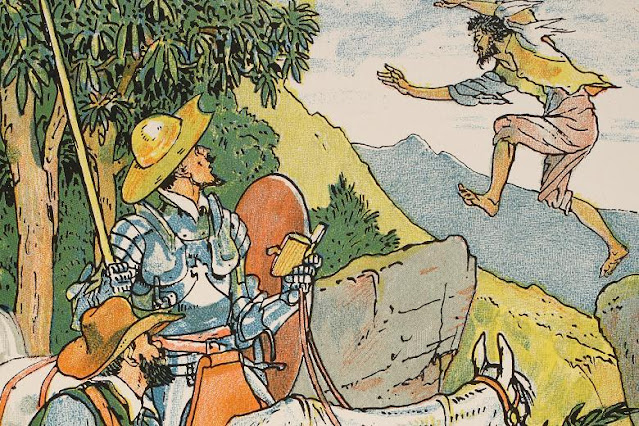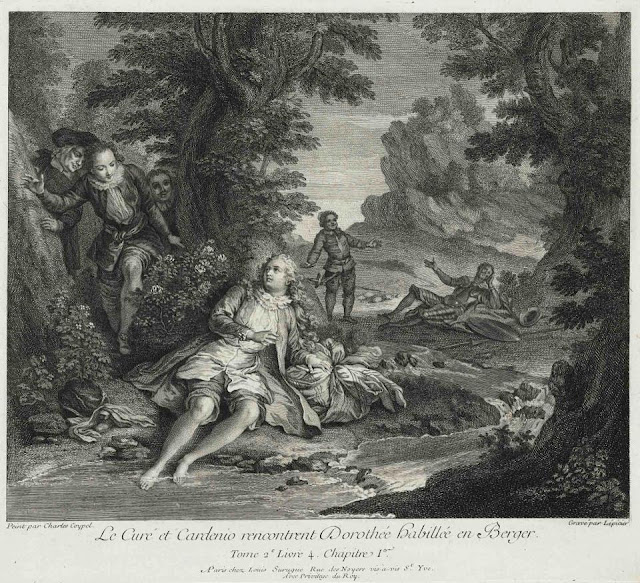Cardenio - Easy Come, Easy Go by Millon de Floss
 |
| Painting by Walter Crane: thanks to The Times |
Author: Millon de Floss
Publisher: Not known
Source book: Lost in a Good Book by Jasper Fforde (Thursday Next #2)
The History of Cardenio, or more often simply Cardenio (see Wikipedia), is a lost play of 1613 which was attributed to William Shakespeare and John Fletcher in 1653.
Thursday Next and her partner Bowden Cable are called to Lord Volescamper’s property, Vole Towers. Their task is to authenticate a copy of this lost play that turned up when his great grandfather Bartholomew Volescamper’s private library was being catalogued.
At first sight it looks too good to be true. But Thursday and Bowden both think it looks a genuine Shakespeare and the manuscript is further authenticated by Professor Spoon who gives it 100%. This exciting news makes the front page of The Owl (New play by Will found in Swindon) and The Mole (Cardenio sensation!) but not The Toad (Swindon croquet supremo Aubrey Jambe found in bath with chimp).
Despite being offered millions for the newly rediscovered play, Lord Volescamper gives it to Yorrick Kaine to do with as he wishes. Yorrick Kaine is the elected leader of the small, right wing, pro-Crimean, Welsh-hating Whig party. For more information see AJP Milliner’s book The New Whigs - From Humble Beginnings to Fourth Reich. The Whigs want to reduce the cheese tax and offer dukedoms as prizes on the National Lottery. Wouldn’t most people rather win money?
The Whig party scores a huge PR coup when they announce they will be offering licenses to perform the play free of charge.
Unfortunately for everyone concerned, because apparently Cardenio is a great play, the ‘too good to be true’ part of this plot turns out to be true. The play has been purloined from the Great Library and must be returned. Once a book or a play has been genuinely lost, it must remain lost. So Cardenio must be lost once more.
And also, Yorrick Kaine turns out to be a fictional character who has moved to real life. Or the real life that Thursday Next lives in (most of the time).
Millon de Floss has also written Great Expectations, a Study. He writes that ‘Miss Haversham, abandoned at the altar and living her life in dreary isolation dressed in her tattered wedding robes, that steals the show. She remains one of the book’s most memorable fixtures.’ But Millon has no idea that Miss Haversham leads a double life as a Jurisfiction agent. And possibly a triple life in her pursuit of world speed records. Is a triple life a thing?
 |
| Thanks to The Frick Collection |
Comments